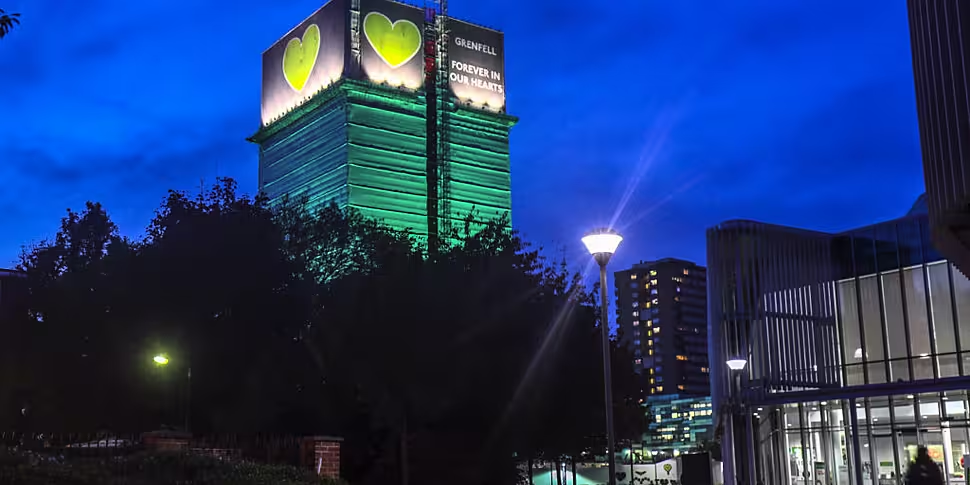The British government was "well aware" of the deadly risks posed by combustible cladding and insulation a year before the Grenfell Tower fire, but "failed to act on what it knew", a landmark report has found.
The report also said "systemic dishonesty" from cladding and insulation companies and a "toxic" relationship between the tower's residents and the Tenant Management Organisation (TMO), which was responsible for running services, were contributing factors.
More than seven years on from the fire that claimed 72 lives, Grenfell Inquiry Chair Martin Moore-Bick has published his final findings into how the building in west London came to be in such a deadly state.
He also concluded UK government officials were "complacent, defensive and dismissive" on fire safety, while cutting red tape was prioritised.
It also found there was an "inappropriate relationship" between approved inspectors and those they were inspecting.
Mr Bick's report runs to nearly 1,700 pages and encompasses years of work and the testimony of hundreds of witnesses.
It contains 58 recommendations to ensure a similar disaster never happens again.
'Complacency'
The first phase of the inquiry's report found in 2019 that combustible cladding was the primary cause of the rapid spread of the fire.
The inquiry has now concluded that the tragedy was the culmination of decades of decision -makers failing to properly consider the risks of combustible materials on high-rise buildings, while ignoring the mounting evidence before them.
The deadly risks of combustible cladding panels and insulation had been identified as early as 1991, when a fire engulfed the Knowsley Heights tower block in Merseyside.
The block had recently been covered in "rainscreen" cladding.
Six people were killed at Lakanal House in Camberwell, south London in 2009 after a fire spread to combustible cladding.
"By 2016 the department [for communities and local government] was well aware of those risks, but failed to act on what it knew," the report states.
It adds that by the time Grenfell Tower was being renovated in the 2010s, a "seriously defective" system was in place to regulate the construction and refurbishment of high-rise buildings.
Dangers 'deliberately concealed'
The report condemns cladding and insulation firms involved in this work, saying they engaged in "deliberate and sustained strategies to manipulate the testing processes, misrepresent test data and mislead the market".
It said that "systemic dishonesty" from the companies resulted in hazardous materials being applied to the block.
Arconic, the company that made cladding for Grenfell Tower, "deliberately concealed" the danger of the panels used on the tower, while Celotex, which supplied most of the insulation, similarly "embarked on a dishonest scheme to mislead customers".
The report also found that Irish company Kingspan "knowingly created a false market in insulation" in buildings over 18 metres in height.
It notes that the company made a "false claim" that its K15 insulation product had been "part of a system successfully tested under BS 8414 and could therefore be used in the external wall of any building over 18 metres in height regardless of its design or other components".
Kingspan response
In a statement to Newstalk, Kingspan said it welcomes the publication of today's report.
"Kingspan has long acknowledged the wholly unacceptable historical failings that occurred in part of our UK insulation business.
"These were in no way reflective of how we conduct ourselves as a group, then or now. While deeply regrettable, they were not found to be causative of the tragedy.
"Kingspan has already emphatically addressed these issues, including the implementation of extensive and externally-verified measures to ensure our conduct and compliance standards are world leading.
"We remain committed to playing a leading role in providing safe and sustainable building solutions, including continuing to work with government and industry partners," it added.
Grenfell residents 'dismissed'
There was also harsh criticism of the Tenant Management Organisation (TMO), which was responsible for running services at Grenfell Tower.
Residents who raised concerns about safety were dismissed as "militant troublemakers", while there was "a toxic atmosphere" with the TMO "fuelled by mistrust of both sides".
Relations "were increasingly characterised by distrust, dislike, personal antagonism and anger" and "some, perhaps many, occupants of the tower regarded the TMO as an uncaring and bullying overlord that belittled and marginalised them".
The Tenant Management Organisation and the Royal Borough of Kensington and Chelsea were jointly responsible for managing fire safety at Grenfell Tower - but the years between 2009 and 2017 were marked by a "persistent indifference to fire safety", the report said.
The counsel for the inquiry has accused parties involved in the disaster of a "merry-go-round of buck-passing" - largely blaming each other for the disaster.
The inquiry can't make findings of civil and criminal liability.
The police investigation into the disaster will continue now that the work of the inquiry is complete.
Reporting by: IRN









